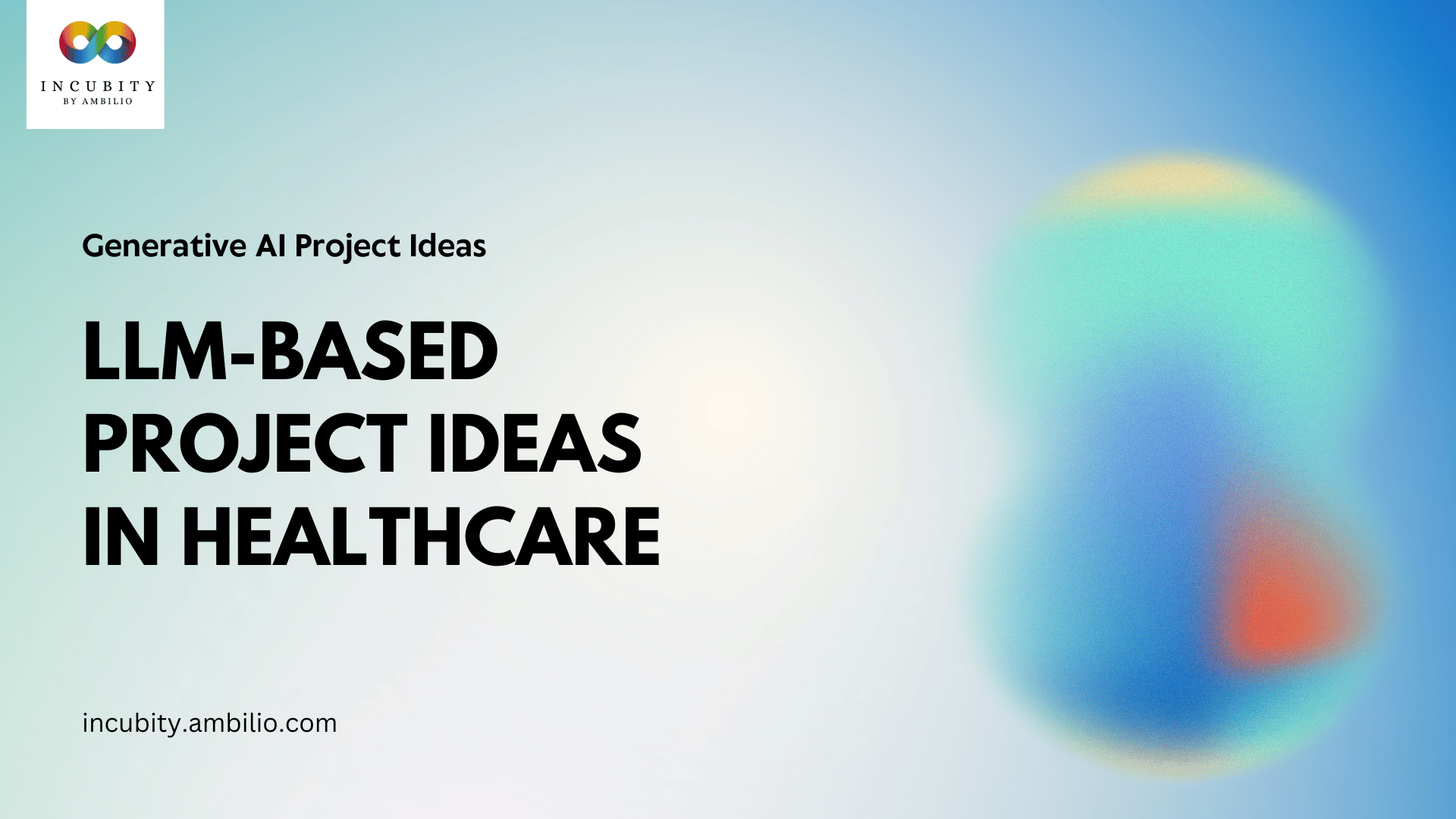In the rapidly evolving landscape of healthcare, leveraging cutting-edge technology is paramount to improving patient outcomes, enhancing efficiency, and driving innovation. One such technology at the forefront of this revolution is Large Language Models (LLMs). These powerful artificial intelligence systems, like OpenAI’s GPT-4, or Mistal have the potential to transform various aspects of healthcare delivery and management. Let’s explore ten compelling LLM project ideas poised to revolutionize the healthcare industry.
LLM Project Ideas in Healthcare
Explore curated LLM project ideas in healthcare, designed for Generative AI enthusiasts seeking innovative applications in the medical field.
LLM-Assisted Automated Medical Diagnosis and Triage
Imagine a system that can swiftly analyze patient symptoms, medical history, and test results to provide accurate diagnosis and triage recommendations. By harnessing the capabilities of LLMs, healthcare providers can streamline the initial assessment process, reducing wait times, and ensuring timely intervention for patients. Developing such a system involves training the LLM on vast amounts of medical data, including symptomatology, disease profiles, and treatment protocols, to enable robust decision-making.
LLM-Driven Personalized Treatment Recommendations
Every patient is unique, with individual medical needs, genetic predispositions, and responses to treatment. By training LLMs on clinical data and research literature, healthcare providers can generate personalized treatment recommendations tailored to each patient’s specific circumstances. This approach not only optimizes therapeutic outcomes but also minimizes the risk of adverse effects by accounting for individual variations in drug metabolism and efficacy.
LLM-Based Clinical Decision Support
In the complex realm of healthcare, clinical decision-making can benefit greatly from intelligent support systems. LLM-based solutions can assist healthcare providers by summarizing relevant research findings, guidelines, and patient data, empowering them to make informed decisions that align with best practices and evidence-based medicine. These systems can enhance diagnostic accuracy, treatment selection, and patient management, ultimately improving overall care quality.
LLM-Powered Intelligent Chatbots for Patient Engagement
Engaging patients in their healthcare journey is crucial for promoting adherence to treatment plans, fostering self-care behaviors, and facilitating access to healthcare services. LLM-powered chatbots offer a conversational interface through which patients can seek information, receive guidance, and even schedule appointments. These virtual assistants provide personalized support, answer queries in real-time, and deliver health education content, enhancing patient engagement and empowerment.
LLM-Enabled Adverse Drug Event Prediction
Identifying and mitigating the risk of adverse drug events is essential for patient safety and medication management. LLMs can analyze electronic health records and clinical notes to detect patterns indicative of potential adverse reactions or drug interactions. By proactively flagging these risks, healthcare providers can intervene promptly, adjust treatment regimens, or explore alternative therapies, thereby minimizing harm and optimizing medication safety.
LLM-Enhanced Automated Medical Coding and Billing
The administrative burden associated with medical coding and billing processes can impede operational efficiency and detract from patient care. LLM-powered systems offer a solution by automating the extraction and encoding of relevant information from clinical documentation. By accurately capturing diagnoses, procedures, and other billing codes, these systems streamline the reimbursement process, reduce billing errors, and alleviate administrative workload for healthcare professionals.
LLM-Powered Drug Interaction Checker
Polypharmacy poses a significant risk to patient safety, as concurrent use of multiple medications increases the likelihood of drug-drug interactions. LLM-based drug interaction checkers analyze a patient’s medication list to identify potential conflicts or adverse reactions. By flagging these interactions and suggesting safer alternatives, these tools empower healthcare providers to make informed prescribing decisions, minimizing the risk of medication-related harm.
LLM-Driven Automated Literature Synthesis
Staying abreast of the latest medical research literature is challenging amidst the deluge of publications. LLM-based literature synthesis systems offer a solution by rapidly reviewing and summarizing relevant studies, providing healthcare professionals with timely insights and evidence-based recommendations. By automating the synthesis process, these systems enable more efficient knowledge dissemination and support evidence-based practice.
LLM-Based Clinical Trial Matchmaker
Accessing clinical trials can be a daunting task for patients seeking experimental treatments or research opportunities. LLM-powered clinical trial matchmakers bridge this gap by analyzing patient medical information and matching them with relevant ongoing trials. By facilitating patient enrollment and participation in clinical research, these platforms accelerate the development of new therapies and expand treatment options for patients.
LLM-Powered Medication Adherence Assistant
Non-adherence to medication regimens is a pervasive issue that compromises treatment effectiveness and patient outcomes. LLM-powered medication adherence assistants offer personalized reminders, educational resources, and support services to help patients adhere to their prescribed medications. By promoting medication adherence through tailored interventions, these tools improve treatment adherence rates and enhance patient well-being.
Final Words
In conclusion, the potential applications of LLMs in healthcare are vast and transformative. From enhancing diagnostic accuracy to improving patient engagement and streamlining administrative processes, these innovative solutions hold the promise of revolutionizing healthcare delivery and management. By harnessing the power of LLMs, healthcare stakeholders can usher in a new era of precision medicine, efficiency, and patient-centered care.



